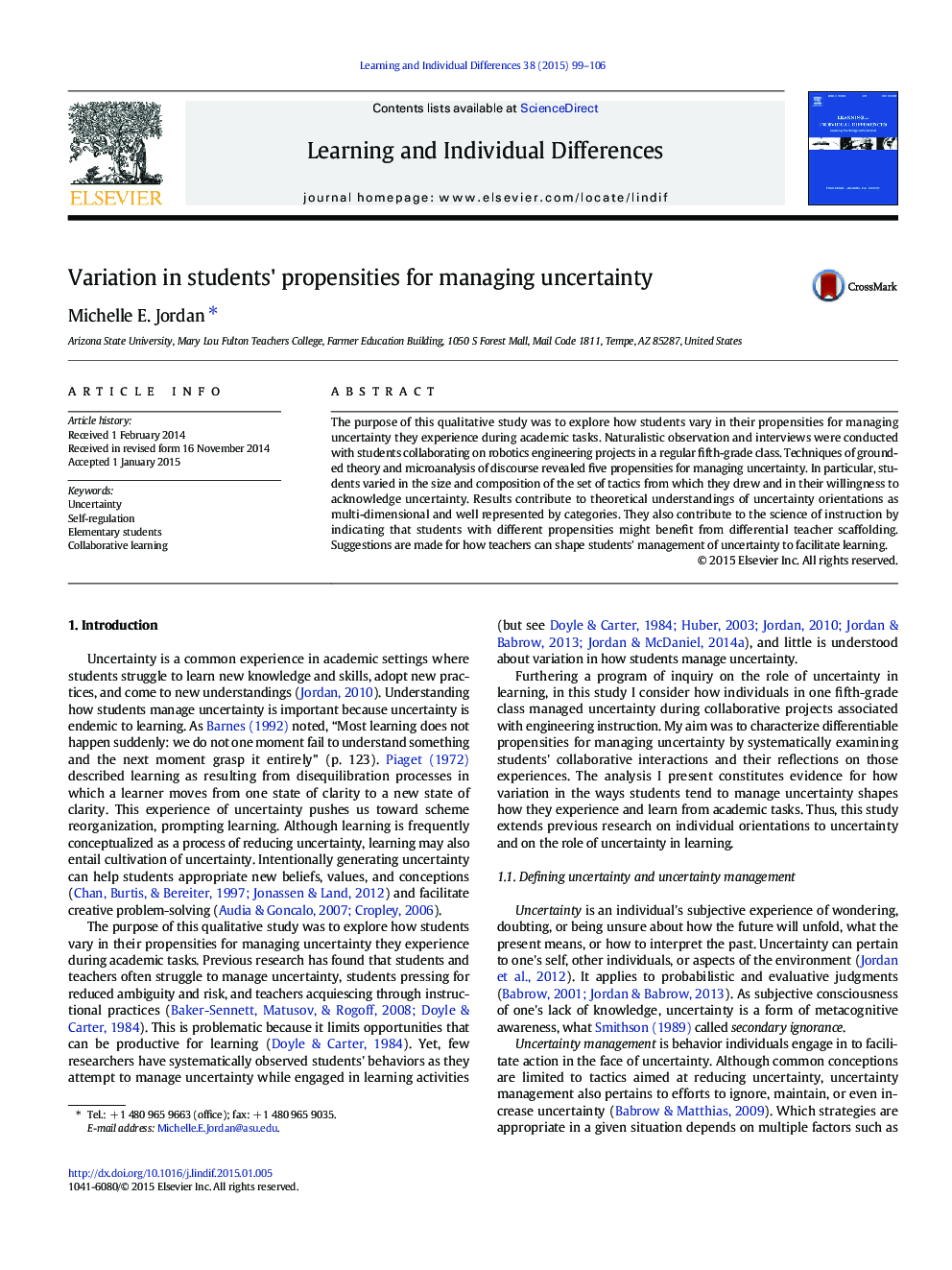| Article ID | Journal | Published Year | Pages | File Type |
|---|---|---|---|---|
| 364628 | Learning and Individual Differences | 2015 | 8 Pages |
•Analysis identified five differentiable propensities for managing uncertainty.•Students varied in their willingness to acknowledge uncertainty.•Students varied in their sets of strategies for managing uncertainty.
The purpose of this qualitative study was to explore how students vary in their propensities for managing uncertainty they experience during academic tasks. Naturalistic observation and interviews were conducted with students collaborating on robotics engineering projects in a regular fifth-grade class. Techniques of grounded theory and microanalysis of discourse revealed five propensities for managing uncertainty. In particular, students varied in the size and composition of the set of tactics from which they drew and in their willingness to acknowledge uncertainty. Results contribute to theoretical understandings of uncertainty orientations as multi-dimensional and well represented by categories. They also contribute to the science of instruction by indicating that students with different propensities might benefit from differential teacher scaffolding. Suggestions are made for how teachers can shape students' management of uncertainty to facilitate learning.
